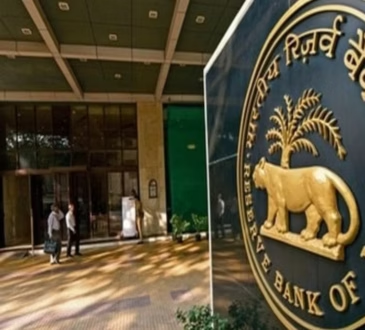Stablecoins And Other Financial Technology Advancements Could Transform The Global Economy : Analysis

Gita Bhatt, a Policy Communications professionals, noted that stablecoins and other financial tech advancements are expected to transform the global economy, presenting both opportunities and significant challenges.
As outlined in the International Monetary Fund’s (IMF) recent blog post, policymakers face the complex task of balancing the benefits of these innovations with the risks they pose to consumers and financial stability.
The update shared by the IMF underscores the transformative potential of digital assets and the need for forward-thinking regulation to harness their benefits while mitigating dangers.
Stablecoins, a form of digital asset pegged to stable reserves like currencies or government bonds, have surged in popularity, amassing millions of users worldwide.
These assets enable low-cost, round-the-clock cross-border transactions, offering an alternative to traditional payment systems.
The blog post shared by the IMF highlights that new legislation in the United States and other countries could further accelerate their adoption, potentially reshaping global financial flows.
For instance, stablecoin providers like Tether and Circle already hold more U.S. Treasuries than some sovereign nations, reinforcing the dollar’s dominance in global finance.
This trend could solidify the United States’ role as the world’s banker, increasing demand for its safe assets and stabilizing its external deficits.
Beyond stablecoins, financial advancements are reportedly being driven by both public and private sectors.
The IMF points to India’s Unified Payments Interface (UPI) as an example of public-sector innovation, facilitating over 20 billion transactions monthly by connecting banks, platforms, and apps.
Such systems respond to consumer demand for fast, efficient, and inclusive payment solutions.
Meanwhile, private-sector players, including fintechs and big tech firms, are challenging traditional financial institutions with disruptive products like cryptocurrencies and tokenized assets.
These updates promise greater efficiency, broader financial inclusion, and enhanced competition, but they also introduce risks that demand careful oversight.
The IMF warns that without proper regulation, stablecoins and other digital assets could exacerbate financial instability.
Criminals were among the earliest adopters of cryptocurrencies, exploiting their anonymity for illicit activities like money laundering and tax evasion.
Stablecoins, if not properly managed, could amplify these risks, necessitating stringent measures to ensure transparency and compliance.
Moreover, the rise of stablecoins could lead to new monopolies, as tech giants leverage their networks to dominate markets, potentially stifling competition and monetizing user data.
In countries with weaker currencies, stablecoins pegged to the dollar could accelerate “dollarization,” undermining monetary policy and economic stability.
To address these challenges, the IMF advocates for a balanced regulatory approach.
Policymakers must craft frameworks that protect consumers and investors while fostering technology advancements.
This includes ensuring stablecoin providers maintain sufficient liquidity and capital, akin to money market funds, to prevent runs and ensure redemption guarantees.
International cooperation is also critical, as digital assets operate across borders, requiring harmonized standards to prevent regulatory arbitrage.
The IMF emphasizes that clear, risk-based regulation can limit spillovers and safeguard financial stability without stifling progress.
The broader implications of these advancements potentially extend beyond finance.
The IMF’s updated System of National Accounts highlights the need to better measure digital assets and their economic impact, ensuring policymakers have accurate data to navigate this new era.
As financial technologies evolve, they could reshape capital flows, currency dominance, and even wealth distribution, potentially concentrating economic power among a few players.
Yet, with thoughtful regulation, these innovations could unlock new possibilities, from improving payment systems to boosting productivity through artificial intelligence and other emerging technologies.
To recap, stablecoins and financial tech advancements hold potential to enhance the digital economy, but their success hinges on policymakers’ ability to strike a delicate balance.
By fostering tech advancements while safeguarding stability, governments and central banks can ensure these technologies aim to deliver inclusive growth and economic resilience.
As the IMF’s recently published insights suggest, the path forward requires vigilance, collaboration, and a sincere commitment to harnessing the promise of this financial evolution for the benefit of the global society.




